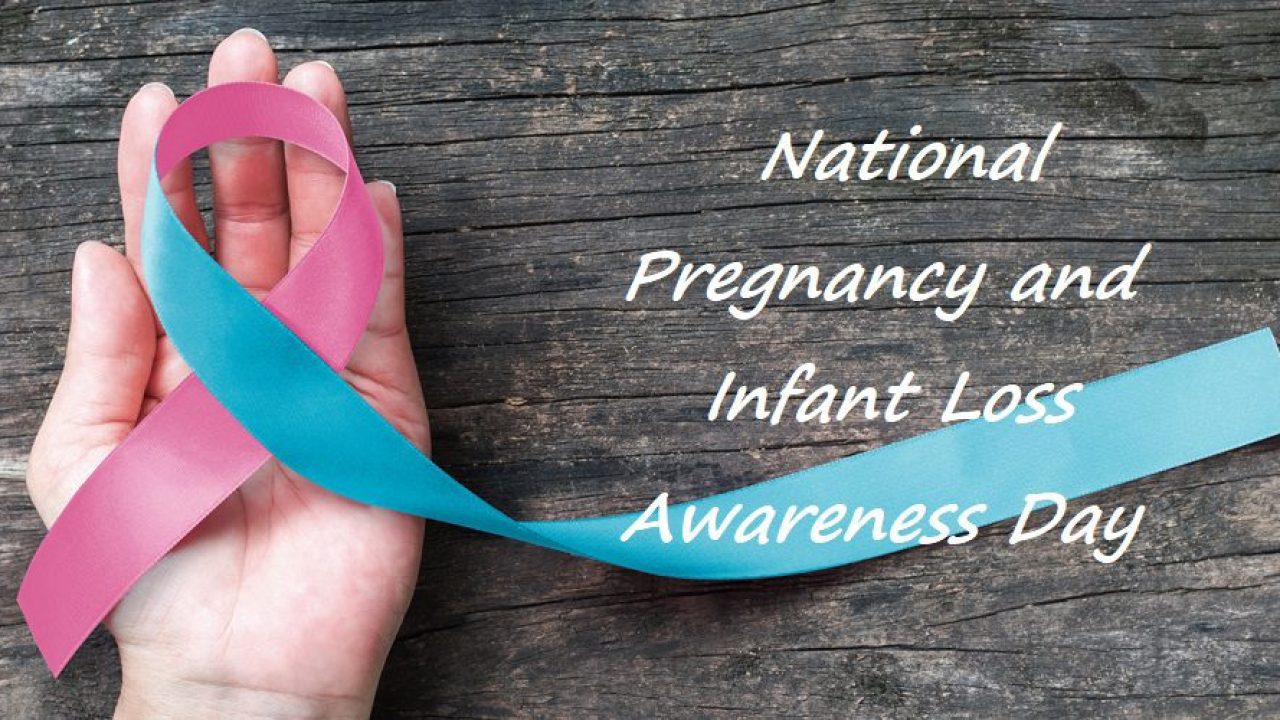“When a child loses his parent, they are called an orphan. When a spouse loses her or his partner, they are called a widow or widower. When parents lose their child, there isn’t a word to describe them. This month recognizes the loss so many parents experience across the United States and around the world. It is also meant to inform and provide resources for parents who have lost children due to miscarriage, ectopic pregnancy, molar pregnancy, stillbirths, birth defects, SIDS, and other causes.” – former President Ronald Reagan, October 15, 1988
October is pregnancy and infant loss awareness month. One in four women will go through the heartbreak of pregnancy or infant loss. One in four families is devastated by the death of their baby. But the grief of these families and their babies’ lives are rarely acknowledged. Why is that? Is it because people don’t know what to say? Is it too uncomfortable to talk about? Will it make the family of loss more upset? These are some of the potential reasons why pregnancy and infant loss are rarely discussed. But when we look at the statistics, we see just how common this type of loss is. So common in fact, that I am one in four. I experienced a pregnancy loss.
Grief is a difficult journey to navigate and the death of a baby, either through miscarriage or during infancy, is no exception. I am no stranger to grief, like many of us. But the grief I experienced losing my baby through miscarriage was a new type of grief I didn’t know existed. My baby did not have a life outside of my womb, they lived for eights weeks inside my body, before their heart stopped beating. The words “I’m sorry, there is no heartbeat” hurt in a way I didn’t know was possible. I often say that it is one of the most painful experiences I have ever had. The emotional pain was unbearable at times, just when I thought that maybe I was healing, the wound would get ripped open again at the sight of a pregnancy announcement, a gender reveal, or hearing a newborn crying. The wound still gets ripped open often and I find myself back in the ocean of grief. It is something that I will live with for the rest of my life, it will never go away. Nor do I want it to. I want my baby’s life to be acknowledged, to be talked about, to matter. By opening up about my experience I hope it encourages others to also open up and bring about awareness and healing of this type of grief.
One of the most important things that this grief has taught me is just how important seeking help and support is. Grief can cause or worsen feelings of anxiety or depression and leave you feeling lost. You may feel disconnected from yourself and others and not know what to do. I am here to share that there is help, here at Spectrum Health and Human Services, with the Western New York Perinatal Bereavement Network, through Postpartum Support International and more. If you are one in four and are feeling lost or need support, please seek out the help you need through these resources. If you know someone who has had to endure this pain, please support them, in whatever way they may need during their grieving process. Grief is not linear, there will be times of healing and times of breaking. But no matter what stage you may be in, you are not alone.
To all lost babies, pink and blue, every October, we remember you. Always loved, never forgotten.
Ashley Pajor, M.A., LMHC-P
Clinician IV
Southtowns Counseling Center


